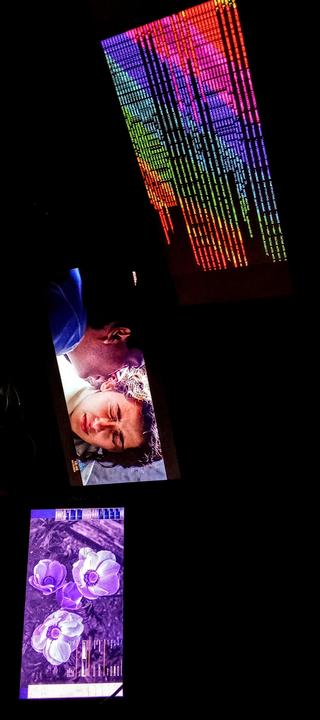There's one subject I haven't seen photographers talk about
The subject of photo archive management
It's not as easy as you may think.
Many people, especially in this last decade, grab an Android, grab a toy camera, as I call the small yet much handier cameras from camera brands like Fuji Nikon and Canon then point at the scene, often don't even know what the difference is between proper lighting and inverse lighting, then shoot their photograph.
Most end users don't even realize that they need an infrastructure to properly archive their photographs whatever the quality maybe.
The last time I lost data was in the floppy disk years; after that I never lost anything I archived on magnetic 🧲 media.
That case was a dirty read write head on a floppy drive which scratched my master and my backup disc on surface one.
I mitigated that error by using two floppy drives. One FDD specifically for the master disc after I cleaned the heads, one drive specifically for the backup disc after I cleaned those heads.
In the harddisk era I never lost any data. I use tried and tested procedures which are documented in request for comments RFC. You will find many, just search for them. Even those using tar -cvfz are good
At a certain point in time I switched from film to DSLR. The question was immediate
With my negatives I print what I need and since film 🎥 lasts {almost} forever I had no backup issues since everything was analog.
My first digital DSLR body comes with two SD card slots. 8 GB per slot giving me 16 GB of storage. I usually shoot one card full then go to the other. I use my analog method of shooting only proper scenes. I don't use the camera as a machine gun and then sort out through all the mess which photographs are fair. Quality above quantity. I have a couple of hard drives where i stored the backups and the data Is never Lost. Sounds easy right?
When another DSLR or Point & Shoot body comes in the mix you know need to manage the backups of two devices. Another point and shoot comes in the mix and another DSLR comes in the mix.
Backing up all these devices to the hard drives that I use is risky if one drive fails. The file system I use is EXT4 a tried and tested stable file system.
I mitigated that problem by doubling the amount of hard drives. Now the amount of hard drives start to grow in such a manner that they do not fit in one case anymore. That means another machine had to be built to spread the amount of hard drives. There are significant costs, you need a motherboard a processor, memory, video output, a power supply, another case and you need to pay for electricity to power the new system.
You're starting to see the pattern and the risks involved when you don't want to lose data. When Android phones started to come in the mix it became really interesting.
You can use your Google account to store the images but you'll soon realize that even though they seem to give you a lot of space photographs fill it up exponentially fast.
Also you're storing it on somebody else's computer, who will abuse your data.
There has never been, there shall never be any cloud.
Soon you're faced with the fact that you need a network attached storage system NAS, where you can add drives and still use at the most two or three of those systems to manage your photographic data.
Without realizing it you've become a librarian, without the proper training and study which takes about 2 years!
If you have the computing & Database experience like me, it is easy to set up a plan to do proper archival storage.
The proper plan can include ZFS as a file system, which you will run natively in freeBSD or any other flavor. You can also choose HAMMER2 as your file system running in DragonFlyBSD, which has a very light footprint and a massive robustness built in, just like ZFS
For most people the financial factor will be a bottleneck, when you need to manage eight to twelve to even twenty-four camera devices, when you have stored photographs digitally for decades, starting from the beginning of DSLR camera bodies.
^Z
#OpenSource #Photography #DSLR #SLR #camera #storage #technology #tar #tape #HDD #SSD #EXT4 #ZFS #HAMMER2 #RAID



